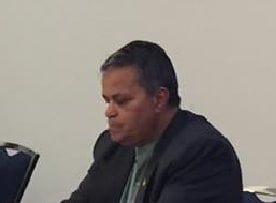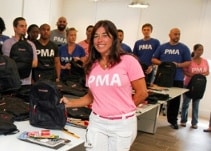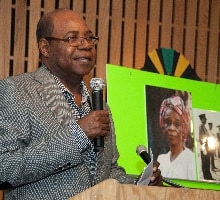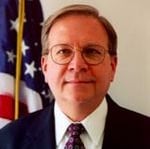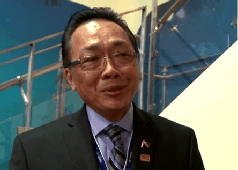Energy Supply A Concern For The Caribbean

Comprehensive Energy Security Policy Mooted
MIRAMAR – The importance of reliable and consistent energy supply in Caribbean Community (CARICOM) member states was emphasized during the deliberations at the CARICOM/CUBA/FLORIDA Trade and Investment Conference held February 10-11, 2016 in Miramar, Florida.
Director of the Institute of International Relations at the University of the West Indies (UWI) Dr. Mark Kirton in his presentation posited that CARICOM states should ensure that in an effort to enhance the competitiveness of their exports, emphasis should be placed on stable energy costs and on securing reliable and consistent energy supply.
In this regard, he recommended that CARICOM seriously consider a comprehensive review of the current Petro Caribe arrangement and lead the movement towards a comprehensive hemispheric energy security policy, engaging all the energy-producing states of the hemisphere. This is especially important, given the current political and economic conditions in Venezuela and the potential collapse of Petro Caribe.
“This new arrangement, if efficiently structured and embraced by the hemispheric states, could lead to a sustainable energy partnership and include a range of states including the United States, Brazil, Venezuela, Trinidad, Ecuador, Colombia and Mexico and could promote the emergence of a number of energy initiatives including wind, water and solar power, alongside the current non-renewable energy sources,” Dr. Kirton pointed out.
He added that a multi- country energy arrangement in the hemisphere is not new and recalled that the San Jose Accord which could serve as a model for the new arrangement.
Dr. Kirton also called on CARICOM states to use the 44 years of experience of its formal relations with Cuba to aggressively foster greater relations especially in the new Mariel Special Development Zone. He also recommended that CARICOM seize the opportunity of its increasing engagement with CELAC, as a member of the coordinating Quartet of States, to develop increased levels of trade and commerce.
“Caribbean entrepreneurs should seek niche markets in Latin American states in the areas of culture, music, and the creative industries and to attract Latin American citizens via education tourism by providing courses in English as a second language,” the Trinidad based director at the University of the West Indies said.
Gabrielle Mandel, Manager Southern Cone and Brazil at the United States Trade and Development Agency (USTDA) pointed to the US Clean Energy Finance Facility (CEFF) for the Caribbean and Central America under which US $20 million has been allocated for grants.
“CEFF-CCA is an innovative, collaborative financing mechanism that brings together U.S. government expertise and resources in order to catalyze greater public and private sector investment in clean energy infrastructure in the Caribbean and Central America.
 The four U.S. government partners under the Facility are the U.S. Department of State, U.S. Agency for International Development (USAID), U.S. Trade and Development Agency (USTDA) and the Overseas Private Investment Corporation (OPIC).
The four U.S. government partners under the Facility are the U.S. Department of State, U.S. Agency for International Development (USAID), U.S. Trade and Development Agency (USTDA) and the Overseas Private Investment Corporation (OPIC).
Under the Facility, USTDA is leveraging its project planning expertise and early-stage funding to support activities to encourage investment in clean energy projects. The Facility is helping promising but undercapitalized projects address key planning and feasibility issues that are critical to successful financing and implementation, Ms. Mandel said.
Antigua and Barbuda, Barbados, Belize, Dominica, Dominican Republic, Grenada, Haiti, Jamaica, St. Kitts/Nevis, St. Lucia and St. Vincent and the Grenadines are the CARICOM member states that qualify for financing from this Facility.

